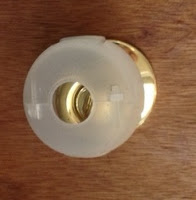More discussion re: the AAP Policy Statement on sensory integration
This was written in response to Dr. Clark's letter to Pediatrics regarding the AAP Policy Statement : Sensory Integration Therapies for Children With Developmental and Behavioral Disorders. ++++++++++++++ Dr. Clark's response included some important points which were good to read, including recognition that single modality interventions tend to be ineffective; I am hopeful that her statements will help to move occupational therapy practice away from these interventions. I was also glad to see mention of the neurobiological literature as theoretical backing for some interventions. This is important literature that we should all keep in mind when trying to understand apparent processing difficulties. Finally I was glad to see mention that occupational therapists use a wide variety of interventions with sensory processing interventions among them but not representing them solely. I think we need to remind or medical colleagues of this fact lest we become as
